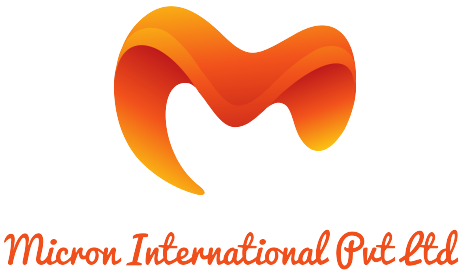- Shifting Tides: Global events and current news impacting your world today.
- Global Economic Shifts and Financial Markets
- Political Developments and International Relations
- The Role of International Organizations
- Technological Advancements and Digital Transformation
- Environmental Challenges and Climate Change
- The Push for Renewable Energy
- Social and Cultural Trends
Shifting Tides: Global events and current news impacting your world today.
In a world increasingly interconnected, staying informed about current events is more crucial than ever. The constant stream of information, often referred to as ‘news‘, shapes our understanding of global affairs, political landscapes, and societal shifts. From economic indicators to geopolitical tensions, and from technological advancements to environmental concerns, the ability to access and interpret information is fundamental to informed decision-making. This article delves into the complexities of the modern information ecosystem, exploring the key events and trends impacting the world today.
Global Economic Shifts and Financial Markets
Recent months have witnessed significant volatility in global financial markets, driven by factors such as inflation concerns, rising interest rates, and geopolitical instability. Supply chain disruptions, exacerbated by ongoing conflicts and trade tensions, continue to impact businesses and consumers alike. While some economies demonstrate resilience, others struggle to navigate these challenging conditions. Investors are closely watching central bank policies and key economic indicators to gauge the potential for recession and adjust their strategies accordingly. Understanding these economic changes is vital for individuals and businesses preparing for the future.
| S&P 500 | 4,500.50 | -1.2% |
| Dow Jones | 34,000.00 | -0.8% |
| NASDAQ | 13,500.75 | -1.9% |
| FTSE 100 | 7,500.20 | +0.5% |
Political Developments and International Relations
The international stage is marked by complex political dynamics and shifting alliances. Diplomatic efforts to resolve ongoing conflicts face setbacks, while new tensions emerge in various regions. The rise of populism and nationalism in several countries continues to reshape political landscapes, influencing policy decisions and international cooperation. Maintaining peace and stability requires astute diplomacy, effective conflict resolution mechanisms, and a commitment to multilateralism. The impact of these political shifts extends far beyond national borders, affecting global trade, security, and humanitarian efforts.
The Role of International Organizations
International organizations, such as the United Nations, the World Trade Organization, and the International Monetary Fund, play a critical role in addressing global challenges and fostering international cooperation. These organizations provide platforms for dialogue, facilitate negotiations, and coordinate responses to crises. However, they also face limitations, including funding constraints, political disagreements, and bureaucratic inefficiencies. Despite these challenges, they remain essential for promoting peace, security, and sustainable development worldwide. Strengthening their capacity and ensuring their effectiveness is crucial for tackling the complex issues facing the international community. The pursuit of a more just and equitable world relies heavily on collective action through these vital institutions.
Technological Advancements and Digital Transformation
Rapid technological advancements continue to transform various aspects of our lives, from communication and entertainment to healthcare and education. Artificial intelligence, machine learning, and blockchain technology are driving innovation across industries, creating new opportunities and challenges. The digital divide, however, remains a significant concern, as access to technology and digital literacy are not evenly distributed. Bridging this gap is crucial for ensuring that everyone can benefit from the transformative power of technology. Ethical considerations, such as data privacy and algorithmic bias, also require careful attention as technology becomes increasingly integrated into our daily lives.
- Artificial Intelligence (AI) impacting automation
- Blockchain technology enhancing security
- The Internet of Things (IoT) creating connected devices
- 5G networks enabling faster connectivity
Environmental Challenges and Climate Change
The planet faces unprecedented environmental challenges, most notably climate change. Rising global temperatures, extreme weather events, and biodiversity loss pose significant threats to ecosystems and human societies. Reducing greenhouse gas emissions, transitioning to renewable energy sources, and adopting sustainable practices are essential for mitigating the impacts of climate change. International cooperation and policy interventions are crucial for achieving these goals. Individuals can also play a role by making conscious choices to reduce their environmental footprint. Addressing these environmental challenges requires collective action and a long-term commitment to sustainability.
The Push for Renewable Energy
The transition to renewable energy sources, such as solar, wind, and hydro power, is gaining momentum worldwide. Government policies, technological advancements, and falling costs are driving the growth of renewable energy investments. These sources of sustainable energy can reduce reliance on fossil fuels, mitigate climate change, and create new economic opportunities. However, challenges remain, including intermittency issues, grid integration complexities, and land use concerns. Overcoming these hurdles requires continued innovation, strategic planning, and supportive regulatory frameworks. A future powered by renewable energy is not just environmentally responsible but also economically viable.
Social and Cultural Trends
Societies around the globe are undergoing significant social and cultural shifts. Demographic changes, evolving family structures, and increasing diversity are reshaping communities and influencing values. Social movements advocating for equality, justice, and human rights are gaining prominence. The impact of social media and digital technologies on social interactions and political discourse is also a significant factor. Adapting to these changes requires open-mindedness, cultural sensitivity, and a commitment to inclusivity. Understanding these trends allows for the building of more harmonious and equitable societies.
- Increasing urbanization leading to new social dynamics
- Shifting demographic landscapes impacting resource allocation
- Greater focus on social justice and equality
- Increased connectivity through social media platforms
The world continues to evolve at a rapid pace, presenting both opportunities and challenges. Staying informed about these developments is essential for navigating the complexities of the modern age. By understanding the key trends and influences shaping our world, we can make more informed decisions and contribute to a more sustainable and equitable future. Remaining engaged and actively participating in shaping the global dialogue is vital for building a better tomorrow.
